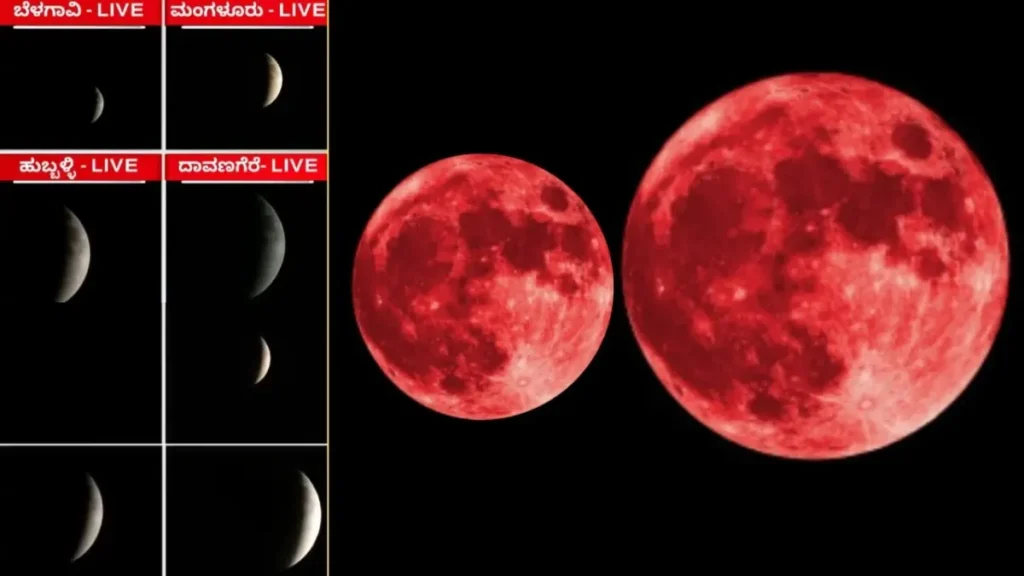The final lunar eclipse of 2025 and the year’s second blood moon lit up the night sky, drawing widespread excitement. Beginning at 9:57 pm, the rare celestial event unfolded in its full glory, turning the familiar white Moon into a glowing copper-red disc. For astronomy enthusiasts and the general public alike, the sight was nothing short of mesmerizing.
Also read: Lunar eclipse 2025: Temples across Karnataka and Tirupati to remain closed
Visible Across Indian Cities
The eclipse was clearly visible in Karnataka, including Belagavi, Hubballi, Mangaluru, Shivamogga, Hassan, Udupi, Davangere, and Bengaluru. Beyond the state, people in major Indian cities such as Hyderabad, Delhi, Mumbai, Kolkata, Jaipur, Mysore, and Cochin also gathered outdoors to witness the spectacle. In India, the eclipse reached totality at 11:42 pm, lasting for an impressive 3 hours and 29 minutes.
Why the Moon Turns Red
A lunar eclipse occurs when the Earth positions itself directly between the Sun and the Moon, casting its shadow on the lunar surface. Unlike a solar eclipse, this event is safe to view with the naked eye. During totality, sunlight refracted through Earth’s atmosphere scatters shorter blue wavelengths, allowing only red and orange hues to reach the Moon. This phenomenon gives rise to the dramatic blood moon effect.
Public Gatherings and Enthusiasm
The celestial show sparked gatherings across the country. In Bengaluru, large crowds assembled at the Nehru Planetarium, where telescopes were set up for a clearer view of the transformation. Families, students, and sky-watchers came together, sharing in the joy of experiencing this astronomical wonder. The shifting shades of the Moon—from pale white to deep crimson—kept spectators enthralled throughout the night.
A Night to Remember
As the last total lunar eclipse of the year, this event was both rare and memorable. For those who gazed skyward, the evening became a celebration of cosmic beauty—an awe-inspiring reminder of the vastness and mystery of the universe.

